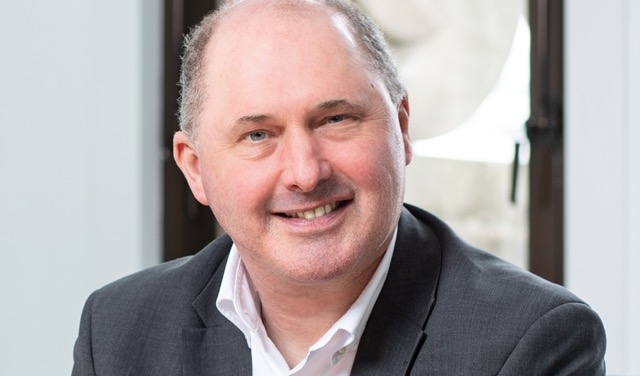Latest Blogs
-
James Jones-Tinsley: Guided Retirement Duty could be game changer

During May, the Pensions Policy Institute (PPI), sponsored by The Pensions Regulator (TPR), concluded that defined contribution (DC) pension savers – including those in SIPPs, as well as in Workplace Pensions - require more guidance when choosing suitable retirement products.
-
Lisa Webster: Overcomplicated rules are a threat

It may be more than a year since the Lifetime Allowance was formally abolished but issues are still emerging from the mess made by rushed legislation.
-
Lisa Webster: To gift or not to gift?

Since the announcement that pensions are to be included in estates for inheritance tax (IHT) purposes the question of whether those with large pension pots should be giving some funds away has become increasingly common.
Popular News
-
6 charged over £75m storage unit SIPP fraud
Six people have been charged over a pension fund and SIPP fraud which involved £75m being invested into storage units in the North of England and Scotland.
-
Westerby snaps up Bristol SIPP firm
Wealth adviser and pensions firm Westerby Group has acquired Bristol-based SIPP specialist Cabot Trustees Limited for an undisclosed amount.
-
State pension age may need to rise to 80
The State Pension age may need to rise as high as 80 to deal with a long term funding crisis, according to new modelling by pension consultants and actuaries Barnett Waddingham.
-
4 in 10 worried about IHT on pensions
Four in 10, 40%, of people say they are worried about upcoming changes to pensions and inheritance tax.
-
Pre-retirees face £18,000 income gap in retirement
The gap people need to fill between their income aspirations in retirement and the amount provided by the state pension has climbed to £18,552, according to new analysis of DWP figures.
-
Taxpayers in dark about pension contributions
A quarter, 24%, of people have little to no idea about how much they and their employers are paying into their pension.
The Society of Pension Professionals said the revival of the government’s landmark Pension Commission is good news as it will consider a wide range of potential solutions rather than focusing solely on automatic enrolment.
Nearly one in 10 estates liable for inheritance tax paid more than £500,000 in the latest available year, with the number expected to soar from April 2027 when pensions are set to be included in IHT calculations.
In the 2021/22 tax year, 2,520 estates paid more than £500,000 in IHT, a 29% increase over three years.
If the trend seen over three years to the end of 2021/22 continues, more than 3,524 estates will pay £500,000 or more in IHT by end of the current tax year.
The figures were obtained through a new FOI by wealth manager Rathbones.
They showed that of the 27,850 estates liable for IHT in the 2021/2022 tax year, 1,630 paid between £500,000 and £999,999 in IHT, while a further 890 estates paid more than £1m.
That totals more than 2,520 estates, 9% of all estates in the year that were liable for inheritance tax. That represents a 29% increase from the figure recorded at the end of the 2018/19 tax year, and the number is rising, Rathbones warned.
Rebecca Williams, divisional lead of Financial Planning at Rathbones, said: “More and more people will be caught out by IHT charges, despite the availability of gifting allowances and the seven-year rule. The deep freeze on both the main nil-rate band and the residence nil-rate band, unchanged since 2009 and 2017 respectively, has led to a creeping form of fiscal drag.
“As house prices and asset values have steadily risen, more estates are being brought into the IHT net simply because the thresholds haven’t kept pace with inflation.”
She said the issue will worsen from April 2027, when pension assets are brought into the fold and the change could pull even modest estates into scope for IHT.
She said that makes it increasingly vital for families to engage in effective Financial Planning. “Without proactive steps, more estates will find themselves facing IHT bills they might not have anticipated.”
Additional research by Rathbones on the impact of the Government’s plans around IHT found that nearly one in three, 31%, people with pensions say they are put off making further contributions to their pension pots by the changes, which means they lose the tax efficiencies of pension saving.
The money they are no longer contributing to their pensions is most likely to be put in cash – around two out of five, 39%, questioned said they will deposit the money in savings accounts while 25% plan to invest some of the money in equity ISAs.
Almost one in seven, 14%, questioned say they have already changed their focus to property investment as a result of the decision.
Rathbones commissioned Viewsbank to survey 619 people with pensions, cash ISAs, investment ISAs, shares, investment funds and cash savings between March 14th and March 17th,. The sample represented the demographic profile of the UK.
British people in their 50s feel the least confident about retirement, according to new research from Aegon.
The Government is reviving the Pensions Commission to look at ways to tackle the problem of people not saving for their retirement.
The Financial Services Compensation Scheme has declared failed Sussex-based wealth manager and Financial Planner Facet Investment Management Ltd (FRN 131372) in default.
I struggle to believe that we are genuinely considering mandating investment in UK assets for larger auto-enrolment pension schemes.





